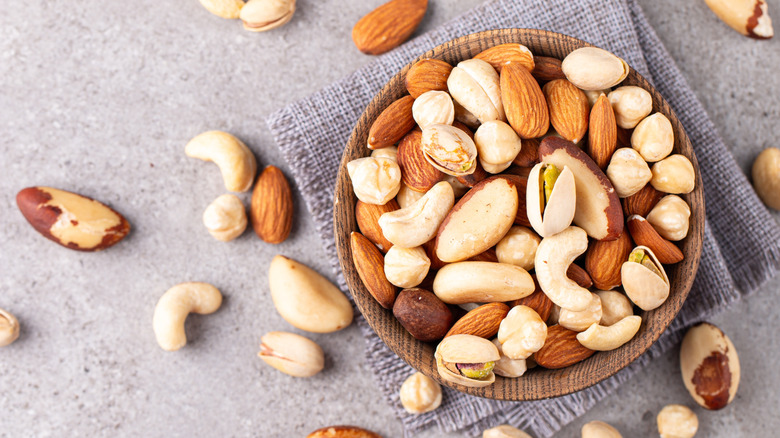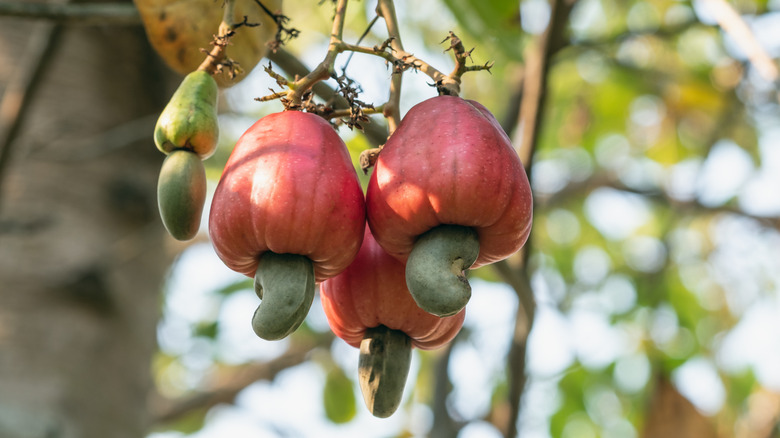The Popular Sweet And Buttery Nut That's Actually Not A Nut At All
The United States is one of the world's top cashew-consuming countries, and for good reason. These tasty and versatile nuts are perfect in everything from savory dishes like cashew chicken to sweet desserts like pineapple brûlée pie. Plus, cashews contain a healthy dose of B vitamins, iron, and potassium, and their sweet, buttery flavor makes them a popular ingredient in vegan alternatives such as creamy dairy-free mac and cheese.
However, as it turns out, these popular nuts are not technically a nut, or even a legume. Cashews grow on a tropical tree that produces something called a cashew apple (which, fittingly, isn't actually a fruit). Underneath the cashew apple grows a small, kidney-shaped (or cashew-shaped) drupe fruit. Drupes are fleshy fruits containing a single hard pit or "stone" — peaches, olives, and pistachios are some popular drupes. But wait, it gets even more nuts: Cashews aren't drupes either.
The cashews we buy in the grocery store are actually the seeds of the drupe fruits that grow on the cashew tree. So, technically speaking, cashews are seeds. If cashews aren't a nut (and, by the way, neither are peanuts, pistachios, coconuts, or almonds), what is a nut? From a botanical perspective, nuts are dry, oily fruits with a single seed surrounded by a hard shell. By this definition, chestnuts and hazelnuts are true nuts, but most of the other foods we consider nuts don't make the cut.
Why are cashews considered nuts?
Fortunately, the culinary definition of nuts is much broader than the botanical one. It includes all the delightfully crunchy varieties you might throw into baked goods (like peanut butter cookies), use in almond and pistachio-studded trail mix, or blend into homemade nut butter. Essentially, if it looks like a nut, tastes like a nut, and is eaten like a nut, then for all practical intents and purposes, it's a nut.
This all begs the question: if cashews aren't a nut, can people with nut allergies eat them? Unfortunately, probably not. A tree nut allergy is a reaction to certain proteins found in the foods we consider 'tree nuts,' including cashews, pistachios, pecans, and walnuts. Some people are allergic to all tree nuts; others only one or two. Sadly, cashews are one of the most common tree nut allergies. If you are lucky enough to be able to safely eat this satisfying seed, enjoy every versatile, buttery bite.

